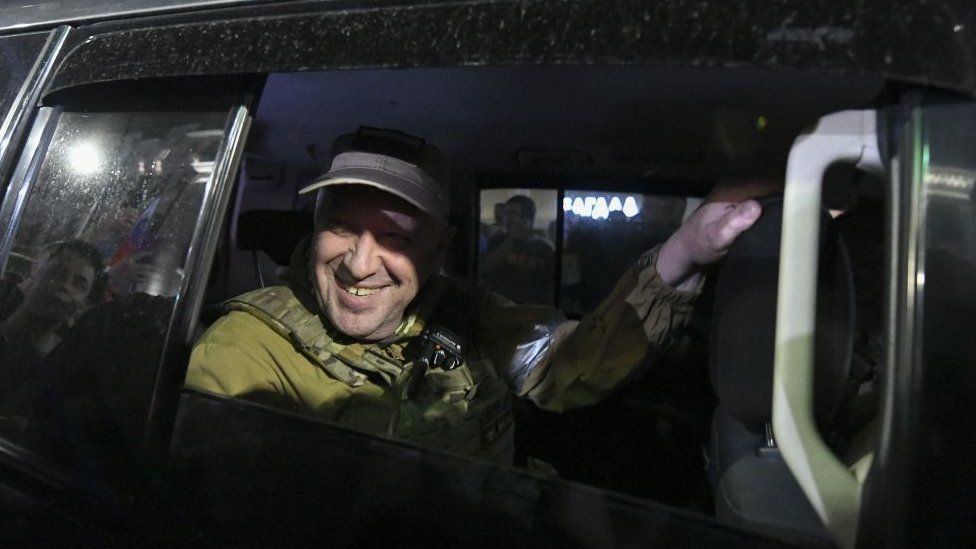Large-scale insecurities have been revealed in Russia as a result of the recent mutiny. .
However, what does it mean for the Ukrainian conflict and what will happen to Wagner, the mercenaries who revolted, now?
First, on June 24, Wagner seized total control of Rostov-on-Don, a Russian city, in a matter of a few short hours. They then dispatched a heavily armed convoy in the direction of Moscow, stopping just 200 kilometers away while shooting down Russian military aircraft.
Even though, as Wagner's leader Yevgeny Prigozhin claims, it was not intended to be, it was the most significant challenge to President Putin's rule to date.
In essence, it was on the verge of starting what might have turned into a devastating civil war in a nation that possessed the largest stockpile of nuclear weapons in the world.
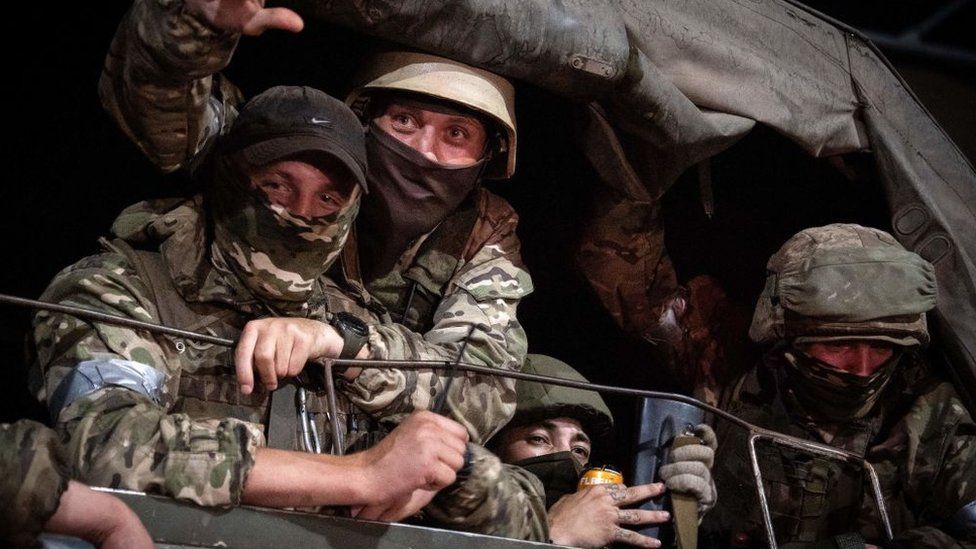
Second, Wagner has been by far Russia's most successful ground force in Ukraine. The majority of the time, its soldiers—who include both career veterans and prisoners—are paid and motivated better than those in the regular army.
Wagner gave Russia something resembling a victory this year when its soldiers took control of Bakhmut, a destroyed city, after months of grueling close-quarter combat akin to the street battles of Stalingrad in World War 2.
Putin faces a difficult decision. It is obviously a future threat because Wagner started a mutiny. But it has also served the Kremlin very well, and not just in Ukraine.
Wagner is deployed to Syria, Libya, and a number of African nations, projecting Russian strategic power and influence all over the world while purporting to be unrelated to the Kremlin. Putin only recently acknowledged that the state provided billions of roubles in funding for Wagner.
The Kremlin has announced that Wagner fighters have until July 1 to decide whether to sign contracts to join the regular army, which is not a particularly appealing option for most. This follows the aborted mutiny. If not, they can either go back home or to Belarus, where Mr. Prigozhin is supposedly living in exile.
According to flight tracking information, a plane connected to Mr. Prigozhin made a landing this week in Minsk, the capital of Belarus. The leader of Belarus, Alexander Lukashenko, confirmed his arrival there.
Since then, though, the same plane has made a return trip to Russia, making stops in Moscow and St. Petersburg.
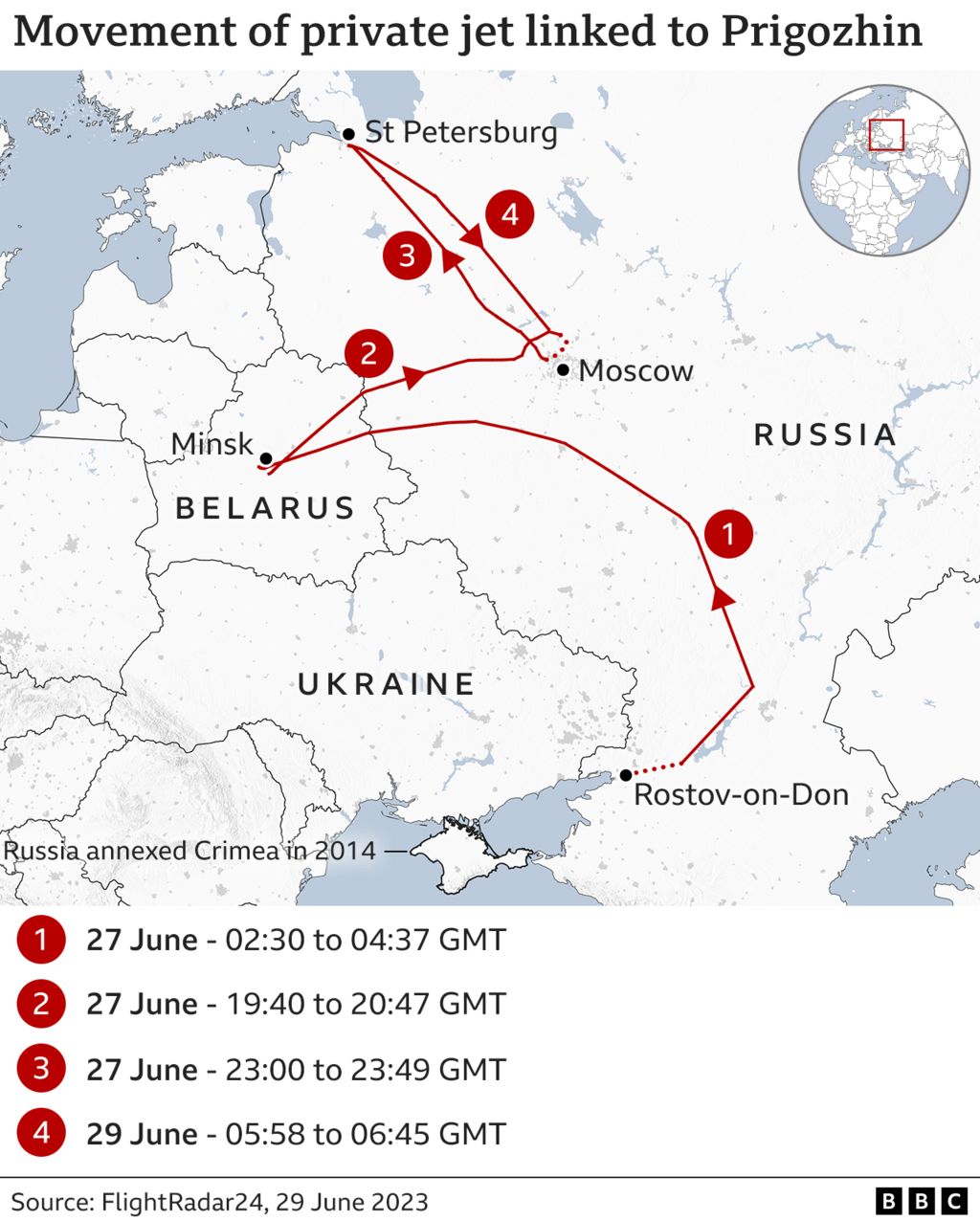
Despite betraying his former patron, President Putin, where is he now, and will he still be permitted to oversee Wagner's operations from Belarus?
He might still be helpful to Russia, but Putin isn't going to like him again for almost starting a civil war. The practice of exacting vengeance on people who are thought to have betrayed the state has a dark history.
British investigators came to the conclusion that Russian agents were responsible for poisoning Alexander Litvinenko and Sergei Skripal, two former KGB officers who defected, in Britain. For the rest of his life, Mr. Prigozhin will be keeping an eye on him.
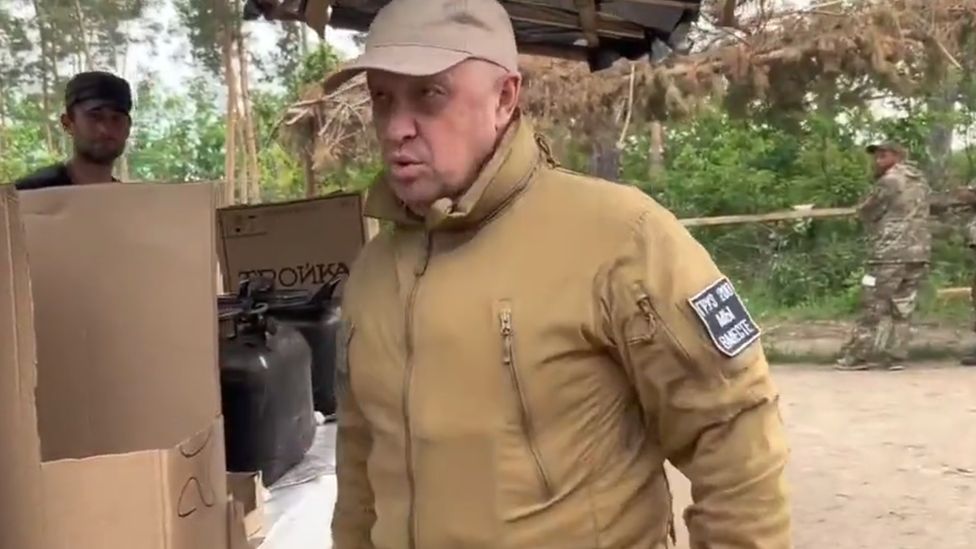
Wagner in Ukraine is almost certainly over, at least individually. Some former combatants may return there as members of the regular Russian army, but its wild days of doing as it pleased and primarily deferring to its commander are over.
The Institute for the Study of War's Kateryna Stepanenko, a Russia analyst, claims that Russia is effectively disbanding one of its most combat-ready assault units. That's a big deal for Ukrainian soldiers who have previously indicated that fighting Wagner was much worse than fighting with regular Russian forces.
Negotiations between Prigozhin, the Kremlin, and Lukashenko, who has offered Wagner troops use of a military camp, appear to be ongoing as the future of the Wagner group is still being worked out.
Around 64 miles from the capital Minsk, a disused base located 13 miles (21 km) from the town of Asipovichy appears to be active, according to satellite images. In Russian media, the location has been identified as a potential residence for Wagner fighters.
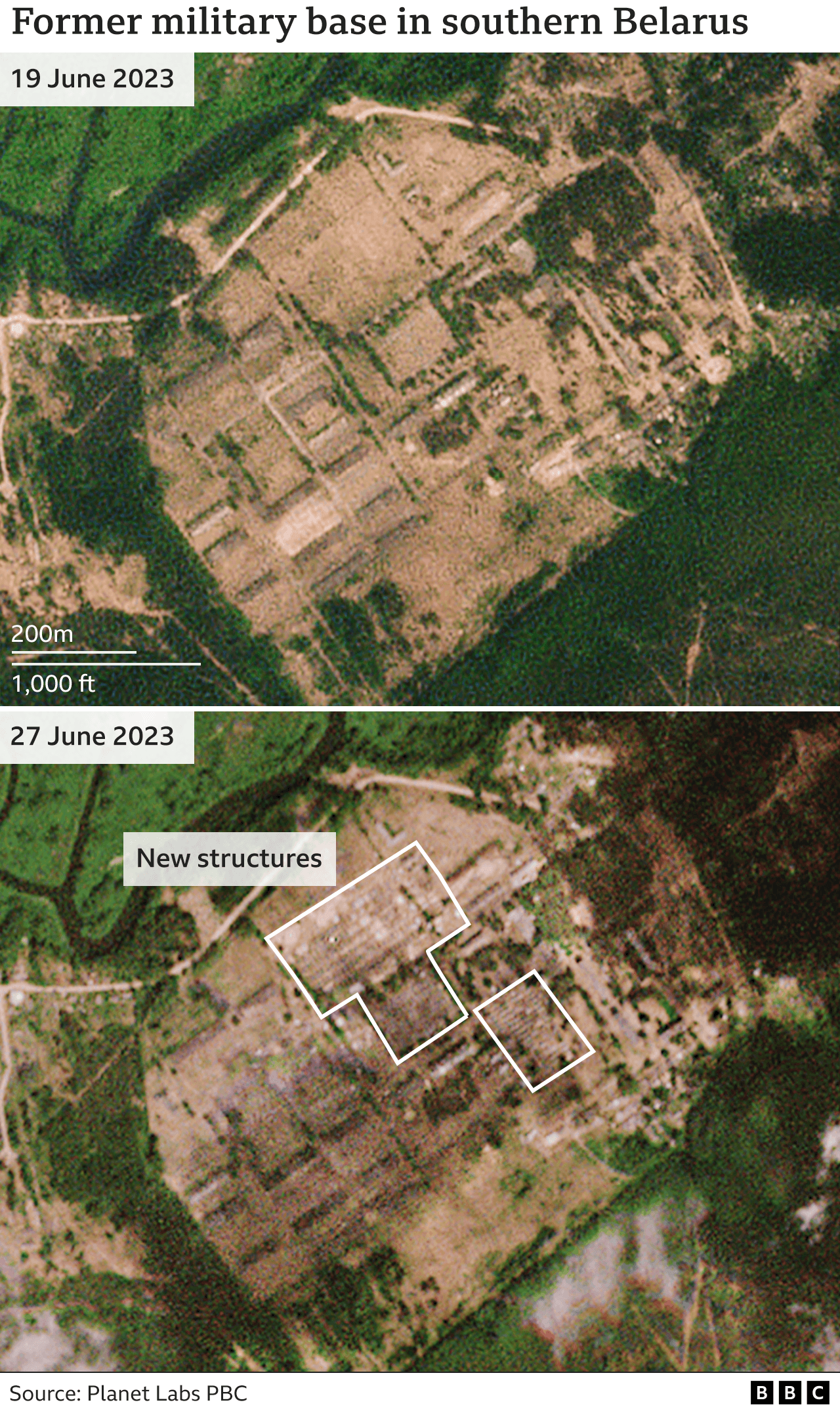
As NATO neighbors Poland, Latvia, and Lithuania worry about potential future subversive activity Wagner may carry out from Belarus, Ukraine now has to worry about fortifying its northern border.
However, no one, most likely not even the Kremlin, is aware of how many Wagner fighters will depart for Belarus, how many will enlist in the Russian army and continue fighting in Ukraine, and how many will hang up their weapons and return home.
Despite one blogger who claims to be a Wagner fighter from Belarus saying the group "continues to work," BBC Verify's search of Telegram online chat rooms turns up few leads. Numerous soldiers are thought to have headed back to their bases in the eastern Ukraine regions that Russia currently occupies in the immediate aftermath of the mutiny.
Since the Wagner uprising, BBC Verify has been searching for evidence of Ukrainian forces' gains, but so far, it has not noticed any appreciable adjustments to the frontline positions.
As Russia is currently on the defensive, Marina Miron, a Russian military expert at King's College London, states, "I don't think it will have an impact right now.".
The Wagner troops won't necessarily weaken the Russian side if the regular Russian army is able to absorb them and repurpose them under a single command structure. ".
The issue of morale among Russian troops on the front lines is what matters in the end. Over time, this could negatively impact morale in the trenches if they believe their commanders are fighting among themselves at home in Russia.
There is still work to be done on Wagner, but its days of functioning largely independently of the Russian army are over. It won't be the same force it once was now that its weapons have been turned in and without the charismatic Prigozhin leading it. And Kyiv is somewhat relieved by that.
Jake Horton, Daniele Palumbo, Paul Brown, and Benedict Garman contributed additional reporting.
What is it that you want BBC Verify to look into?

